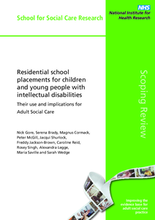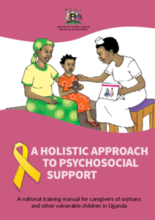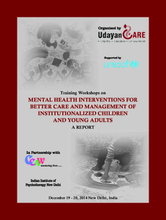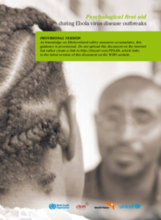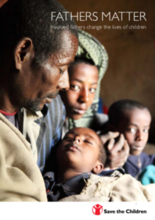Displaying 351 - 360 of 525
This thesis paper employed qualitative methods to capture the online interaction of undergraduate volunteers as part of an undergraduate-student mentorship program. This program was developed to provide mentorship and tutoring for at-risk-youth at a foster care institution.
The current review collates research and policy regarding use of residential schools for children and young people with intellectual disabilities in the UK and transition from these settings to adult services.
The focus of this manual is on translating theoretical knowledge about policies into practical actions to provide psychosocial support to orphans and vulnerable children.
The report from the two-day Training Workshops on “Mental Health and Interventions for Better Care and Management of Institutionalized Children and Young Adults” is now available.
This study involved the use of qualitative methods as part of a larger process evaluation to explore the longer-term experiences of parents who participated in a randomized controlled trial (RCT) of the Incredible Years Parenting Programme (IYPP) in disadvantaged settings in Ireland.
This animated video, made by Dr. Mike Evans, founder of the Health Design Lab at the Li Ka Shing Knowledge Institute, illustrates the impacts of trauma and negative experiences on young children’s brain development and the ways in which healthy cognitive development can be promoted.
This guide focuses on psychological first aid, which involves humane, supportive and practical help to fellow human beings suffering serious crisis events. It is written for people who can help others experiencing an extremely distressing event.
The study used pre-existing data on the most vulnerable children’s (MVC’s) and their guardians’ socio-demographic information and the services they received from Pastoral Activities and Services for People With AIDS Dar es Salaam Archdiocese (PASADA) services agency in Tanzania.
This leaflet is a mapping of Save the children’s role and work in promoting the engagement of fathers. It presents some of the evidence of the benefits of involving fathers and some of the strategies used by the organization and others.
This article is primarily aimed at providing a foundation for analyzing both the challenges and opportunities of partnering with religious communities and organizations in addressing child abuse and neglect.

